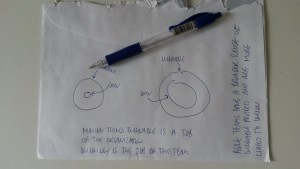Just thinking that agile teams have a broader range of projects that they can win – a broader range of winnable projects. And most likely agile teams also win more of these projects – meaning complete them with success.
Non-agile teams have a smaller range of winnable projects and probably also relatively fewer wins.
At least, that’s what we like to believe – and that’s what I do believe.
If a project is winnable, then a committed, self-organizing team with full support from the organization will be very hard to beat and even harder to prevent from successfully completing the project. This is *** NOT *** where the 70% industry average for the past 20 years failing projects are coming from. Or could it be that the contribution is still larger than we wish for?
My reflection is that making a project winnable from the beginning is something that the agile team needs to accomplish together with the organization. In complex organizations and in contexts of scale, the systemic nature of the challenges to make a project winnable mean that you cannot necessarily count on the team to do it.
To clear away unreasonable and unrealistic expectations, bureaucratic and political obstacles – and other multi-headed dragons of the modern monster organizations.
It’s ultimately the organizations responsibility that projects assigned to agile teams are winnable. It’s the teams responsibility to secure the win!
… quick transcription of this mornings back-of-envelope reflections
(PS: the above also explains why it’s always because of agile when we succeed and always because of the organization when we fail … it’s not far from reality :))
